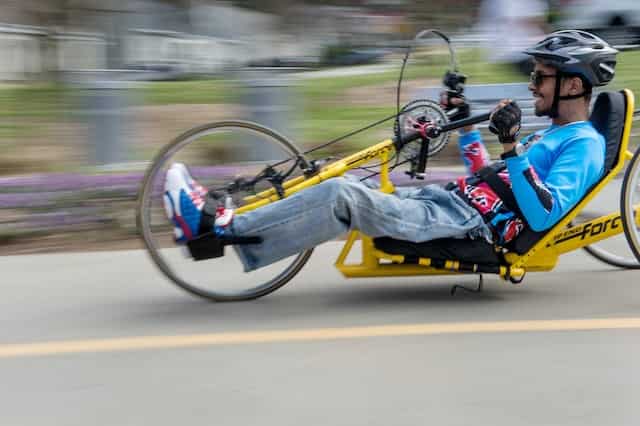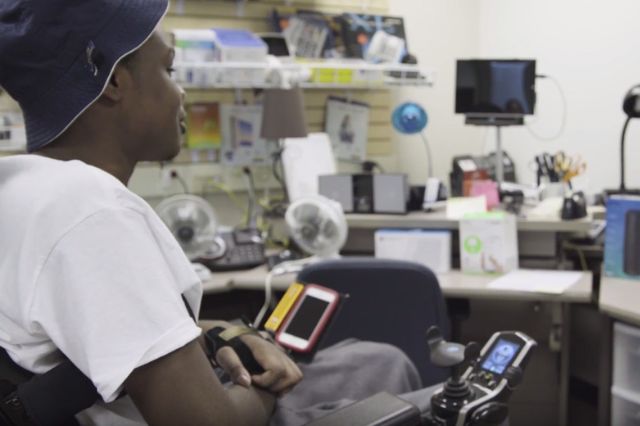Frequently Asked Questions (FAQs) About Clinical Trials
- Why participate in a clinical trial?
- Who sponsors clinical trials?
- What is a protocol?
- What is a control or control group?
- What is a blinded study?
- What are the phases of clinical trials?
- Who can participate in a clinical trial?
- What happens during a clinical trial?
- What is informed consent?
- What should a potential research volunteer do before meeting with the research coordinator or doctor?
- Does a research volunteer need to continue working with a primary healthcare provider while in a trial?
- What are the benefits and risks of participating in a clinical trial?
- How is the safety of the research volunteer protected?
- Can a volunteer stop participating in a clinical trial after it has started?
Why participate in a clinical trial? Back
People who participate in clinical trials have the opportunity to play a more active role in their own health care and help others by contributing to medical research. Research volunteers often gain access to new treatments before they become widely available, or receive existing treatments that are being studied to learn more about risks, benefits and best practices.
Who sponsors clinical trials? Back
Clinical trials are sponsored or funded by a variety of organizations like pharmaceutical (drug) companies, medical institutions, foundations and voluntary groups, in addition to federal agencies such as the National Institutes of Health (NIH).
What is a protocol? Back
A protocol is a study plan that was carefully designed to safeguard the health of the research volunteers as well as to answer specific research questions. A protocol defines the types of people who may participate in the trial, the schedule of tests, procedures, medications and dosages, and the length of the study.
What is a control or control group? Back
A control is the standard by which experimental therapies are evaluated. In many clinical trials, one group of volunteers will be given an experimental drug or treatment, while the other group (the control group) is given either a standard treatment or a placebo. A placebo is an inactive agent that has no treatment value.
What is a blinded study? Back
In a blinded study, neither the participants nor the researchers know who is getting the experimental treatment and who is receiving a placebo or control treatment. Research volunteers will be informed prior to beginning any blinded study that they may receive a placebo, and that certain risks may be associated with delaying treatment.
What are the phases of clinical trials? Back
Clinical trials are conducted in phases. Each phase has a different purpose and helps scientists answer different questions:
- In Phase I trials, researchers test a new treatment in a small group of people (20-80) for the first time in humans to evaluate its safety, determine a safe and well-tolerated dosage range, and identify side effects.
- In Phase II trials, the experimental drug or treatment is given to a larger group of people (100-300) to identify an effective dosage and to learn more about its effectiveness.
- In Phase III trials, the experimental treatment is given to large groups of people (1,000-3,000) to confirm its effectiveness when compared to other treatments or a placebo and to monitor for side effects and collect safety information.
Who can participate in a clinical trial? Back
All clinical trials have guidelines about who can participate, called "inclusion and exclusion criteria." These criteria are used to identify appropriate study participants and keep them safe during the course of the study.
Inclusion criteria dictate whether a person can participate in a clinical trial; conversely, exclusion criteria prevent a person from being able to join. These criteria may include allowed age ranges, the type and stage of a disease that a volunteer should have, previous treatment history, and other medical conditions that are allowed (or are not allowed).
Some research studies need volunteers with illnesses or conditions to be studied in the clinical trial, while others need healthy volunteers.
What happens during a clinical trial? Back
The exact process depends on the kind of trial that is being conducted. The clinical trial team may include doctors and nurses, as well as social workers and other healthcare professionals. They will monitor the health of the participant at the beginning of the trial, give specific instructions for participating in the trial, monitor the participant carefully during the trial and stay in touch after it is completed.
Some clinical trials involve more tests and doctor visits than the participant would otherwise have for an illness or condition. Regardless of the trial type, the participant works closely with a research team. Clinical trial participation is most successful when the protocol is carefully followed and there is frequent contact with the research staff.
What is informed consent? Back
Informed consent is the process of learning the key facts about the benefits and risks of a clinical trial before deciding whether to participate. It continues throughout the study as a way to provide important information to research volunteers. To help someone decide whether to participate, study staff first explain the details of the study. If the volunteer’s native language is not English, translation assistance can be provided.
As a second step, the research team gives the potential volunteer an informed consent form with details about the study, including its purpose, duration, procedures and key contacts, as well as risks and potential benefits.
The potential volunteer then decides whether to sign the informed consent form and participate in the study. The informed consent form is not a contract; research volunteers may withdraw from the study at any time for any reason.
What should a potential research volunteer do before meeting with the research coordinator or doctor? Back
The research volunteer should plan ahead and write down possible questions. When it's time to speak to study staff, the volunteer should ask a friend or relative to come along for support.
Does a research volunteer need to continue working with a primary healthcare provider while in a trial? Back
Most clinical trials provide short-term treatments related to a designated illness or condition, but do not provide extended or complete primary health care. Research volunteers should continue seeing their primary care physicians while in a study.
What are the benefits and risks of participating in a clinical trial? Back
Benefits:
- Well-designed, well-executed clinical trials may be the best way for certain qualified individuals to gain access to new experimental treatments before they become widely available, obtain expert medical care at leading healthcare facilities during the trial, and help others by contributing to medical research.
Risks:
- Treatments may cause unpleasant, serious or even life-threatening side effects.
- Treatments may not be effective.
- The protocol may require more of the research volunteer’s time and attention than a non-protocol treatment, including repeat trips to the study site, additional treatments, longer hospital stays and complex dosage requirements.
- Surgical procedures related to a trial may pose potential risks.
How is the safety of the research volunteer protected? Back
The ethical and legal codes that govern medical practice also apply to clinical trials. In addition, most clinical research is federally regulated with built-in safeguards to protect the participants. The trial follows a carefully controlled protocol, which is a plan that details what researchers will do in the study.
Every clinical trial must be approved and monitored by an Institutional Review Board (IRB). An IRB is an independent committee of physicians, statisticians, community advocates and others that ensures that a clinical trial is ethical and the rights of study participants are protected. All institutions that conduct or support biomedical research involving people must, by federal regulation, have an IRB that initially approves and periodically reviews the research.
Can a volunteer stop participating in a clinical trial after it has started? Back
Yes. A research volunteer can leave a clinical trial at any time. When withdrawing from the trial, the volunteer should alert the research team and describe the reasons for leaving the study.





